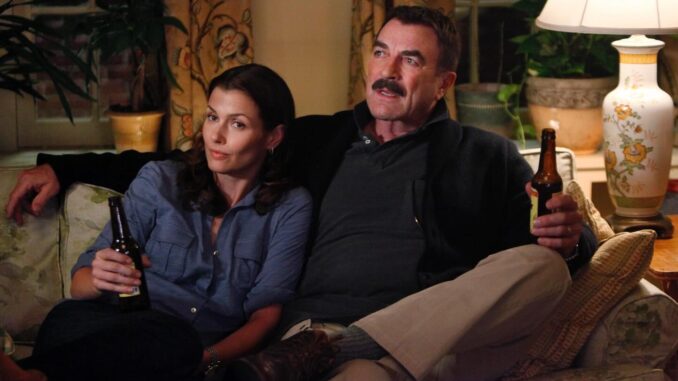
At the core of CBS’s Blue Bloods lies the Reagan family, whose intricate relationships serve as the backbone of the series. The show masterfully explores themes of loyalty, duty, and the challenges of balancing personal and professional lives within a law enforcement family. This article delves into the complex dynamics among the Reagans, illustrating how their interactions not only shape their individual characters but also influence the overarching storylines throughout the series.
The Patriarch: Frank Reagan
Frank Reagan, portrayed by Tom Selleck, serves as the moral compass of the family. As the NYPD Commissioner, Frank embodies the values of integrity and justice, often facing ethical dilemmas that test his convictions. His leadership style is characterized by a blend of authority and compassion, which fosters a deep respect among his family members.
Frank’s relationships with his children are pivotal to the series. He often acts as both a mentor and a father figure, guiding them through their respective careers in law enforcement. His unwavering support, coupled with his high expectations, creates a complex dynamic where his children both admire and feel the pressure of his legacy. This duality is particularly evident in his interactions with Danny, Erin, and Jamie, as they navigate their own identities while living in the shadow of their father’s reputation.
The Sibling Rivalry and Support
The sibling relationships among the Reagan children—Danny, Erin, and Jamie—are marked by both rivalry and support, adding depth to the family dynamics. Danny, played by Donnie Wahlberg, is the eldest son who often takes on a protective role, driven by his experience as a detective. His assertive personality sometimes leads to clashes with his siblings, particularly with Erin, who serves as an Assistant District Attorney. Their professional paths often intersect, creating tension as they grapple with conflicting priorities and differing approaches to justice.
Erin, portrayed by Bridget Moynahan, is fiercely independent and committed to her career, which often puts her at odds with Danny’s more traditional views on family and policing. Their debates reflect broader societal issues, such as gender roles in law enforcement and the complexities of navigating family loyalty against professional integrity. Despite their differences, moments of vulnerability and support shine through, highlighting the strong bond that ultimately unites them.
Jamie, the youngest sibling played by Will Estes, adds a different perspective to the family dynamic. As a rookie cop, Jamie seeks to establish his own identity separate from his renowned family. His journey explores themes of idealism and the challenges of upholding the family legacy while striving to make a name for himself. The interactions between Jamie and his siblings often showcase the balance between familial loyalty and personal ambition, emphasizing the ongoing struggle for acceptance and recognition within the family unit.
The Role of Family Dinners
One of the most iconic elements of Blue Bloods is the family dinner scene, which occurs in nearly every episode. These gatherings serve as a platform for character development and a reflection of the family’s core values. The dinner table becomes a safe space for open discussions, where family members share their triumphs and challenges while grappling with the complexities of their lives.
During these dinners, the Reagans confront ethical dilemmas, personal conflicts, and societal issues, allowing viewers to witness the family’s dynamics in real-time. The conversations often blend humor with serious topics, illustrating the balance of lightheartedness and gravity that defines their interactions. These moments highlight the importance of communication and support within the family, reinforcing the idea that they can face any challenge together.
Navigating Loss and Grief
The Reagan family’s dynamics are further complicated by themes of loss and grief, particularly following the death of Joe, Frank’s son and Erin’s brother, who was killed in the line of duty. This tragedy profoundly affects each family member, shaping their relationships and individual paths. Frank’s struggle with guilt and sorrow influences his parenting style, creating a protective instinct that sometimes clashes with his children’s desire for independence.
The show poignantly explores how the family copes with their loss, illustrating the different ways they process grief. Danny, for instance, channels his pain into his work, while Erin often grapples with feelings of inadequacy and loss of control. Jamie, on the other hand, seeks to honor Joe’s memory by upholding the family’s values in his own career. These nuanced portrayals of grief add depth to their relationships, showcasing the resilience of the Reagan family even in the face of tragedy.
Conclusion
The complex family dynamics within Blue Bloods are a central theme that not only enriches the individual character arcs but also drives the series’ storylines. The interactions among Frank, Danny, Erin, and Jamie illustrate the balance of tradition and modernity, loyalty and independence, and love and conflict. As the Reagans navigate their roles within the law enforcement community and their family, viewers are treated to a compelling exploration of the ties that bind them together. Ultimately, the heart of Blue Bloods lies in the Reagan family’s commitment to one another, reflecting the challenges and triumphs that define family life.
